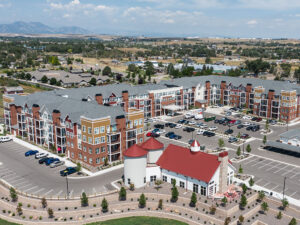Denver, Colorado, is a popular destination for newcomers, thanks to its vibrant culture, outdoor recreation opportunities, and strong economy. However, it’s important to consider the cost of living before making a move.
Overall, Denver’s cost of living is higher than the national average, but it’s lower than some other major cities, such as San Francisco and New York City. According to the Council for Community and Economic Research (C2ER), Denver’s cost of living index is 128.7, compared to the national average of 100. This means that goods and services in Denver are about 29% more expensive than in the rest of the country.
Here is a more detailed comparison of the cost of living in Denver to other parts of the country:
Housing: Housing is the biggest expense for most people, and Denver is no exception. The median home price in Denver is $610,000, which is higher than the national average of $428,700. However, it’s still lower than the median home prices in other major cities, such as San Francisco ($1.5 million) and New York City ($1 million).
Rent is also higher in Denver than in most other parts of the country. The median rent for a one-bedroom apartment in Denver is $2,000, compared to the national average of $1,800. Again, rent is lower in Denver than in other major cities, such as San Francisco ($3,500) and New York City ($3,000).
Utilities: Utilities are one of the few expenses that is lower in Denver than in the national average. The average monthly utility bill in Denver is $145, compared to the national average of $165. This is likely due to Denver’s relatively mild climate, which means that residents don’t have to spend as much on heating and cooling their homes.
Food: Food prices in Denver are also slightly lower than the national average. The grocery price index in Denver is 100, compared to the national average of 102. This means that groceries in Denver are about 2% cheaper than in the rest of the country.
Transportation: Transportation costs in Denver are about the same as the national average. The transportation index in Denver is 100, compared to the national average of 100. This means that transportation costs in Denver are about the same as in the rest of the country.
Other expenses: Other expenses, such as healthcare and entertainment, are also about the same as the national average in Denver.
Overall, the cost of living in Denver is higher than the national average, but it’s lower than some other major cities. Housing is the biggest expense for most people in Denver, but utilities and food prices are slightly lower than the national average.
Here are some tips for saving money on the cost of living in Denver:
- Consider living in a less expensive neighborhood. Denver has a variety of neighborhoods to choose from, with different price points. If you’re willing to live further away from the city center, you can find more affordable housing.
- Look for roommates. If you’re single or have a small family, consider getting roommates to help split the cost of rent.
- Take advantage of free and low-cost activities. Denver has a lot to offer residents and visitors alike, without spending a lot of money. There are free museums, parks, and events throughout the year.
- Cook at home more often. Eating out can be expensive, especially in Denver. Save money by cooking at home more often.
- Use public transportation or carpool. Driving can be expensive, especially in a city like Denver with traffic congestion. Save money on gas and parking by using public transportation or carpooling with friends or coworkers.
With a little planning, it’s possible to live comfortably in Denver without breaking the bank.




